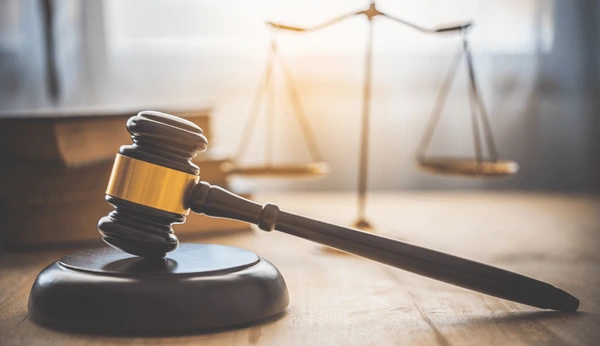Understanding the Court System When You’re Not a Lawyer

Walking into a courthouse when you’re facing criminal charges can feel intimidating and confusing. The whole place seems designed for people who understand legal language and procedures, but you’re just a regular person trying to figure out what’s happening to your life. Court clerks speak in abbreviations, judges use terms you’ve never heard before, and everyone seems to know unwritten rules that nobody bothered to explain to you.
The reality is that the court system wasn’t built with ordinary people in mind. It evolved over hundreds of years to serve lawyers and judges, and somewhere along the way, it became this complicated maze that regular folks have to navigate during some of the worst times in their lives. But understanding how courts actually work can help you feel less lost and make better decisions about your case.
The People Who Control Your Case
Courts have their own little ecosystem of people who all play different roles in deciding what happens to you. The judge is obviously the most important person in the room, but they’re not the only one making decisions that affect your future.
Prosecutors are the lawyers who work for the government and try to prove you’re guilty. They have enormous power because they decide what charges to file, what plea deals to offer, and whether to dismiss cases entirely. Even though they’re supposed to seek justice, not just convictions, many prosecutors are more interested in their win-loss record than in what’s fair.
Court clerks might seem unimportant, but they control the paperwork that keeps your case moving. If they don’t file something correctly or if deadlines get missed, it can seriously hurt your case. Being polite to court staff isn’t just good manners – it’s good strategy.
Bailiffs and court officers provide security, but they also watch how defendants behave and sometimes report back to judges. Showing up late, dressing inappropriately, or acting disrespectful can hurt your case before you even speak.
How Criminal Court Cases Actually Flow
Criminal cases follow a pretty standard pattern, but the timeline can vary wildly depending on how complicated your situation is and how busy the court is. Your first court appearance is usually an arraignment, where they formally read the charges against you and ask how you want to plead.
Most people plead not guilty at arraignment, even if they think they might want to work out a deal later. This keeps all your options open and gives your lawyer time to investigate the case and negotiate with prosecutors. Pleading guilty right away almost never makes sense because you give up any chance to get a better outcome.
After arraignment, there are usually several more court dates for things such as pre-trial conferences, motion hearings, and settlement discussions. DWI cases often require defendants to work with an attorney for dwi defense because these charges involve complex technical evidence and specialized procedures that can make or break the outcome.
Most cases get resolved through plea bargaining rather than going to trial. This happens during those pre-trial meetings where your lawyer and the prosecutor try to work out a deal that both sides can live with. If no deal gets reached, the case goes to trial where a judge or jury decides whether you’re guilty.
What Judges Really Care About During Court Proceedings
Judges see hundreds of defendants every month, so they develop strong opinions about what they want to see from people who appear in their courtrooms. Being on time matters more than you might think. Judges start their days early and they expect everyone else to do the same. Showing up late sends a message that you don’t take the process seriously.
How you dress also matters, whether that seems fair or not. Courts are formal places, and judges expect people to dress accordingly. You don’t need an expensive suit, but you should look clean and respectful. Shorts, flip-flops, tank tops, and clothing with inappropriate messages will hurt your case.
Judges also pay attention to how you respond when they’re talking. Standing when the judge enters, saying “yes sir” or “yes ma’am” instead of “yeah,” and not interrupting shows that you understand the seriousness of the situation. These small things can influence how judges view you and your case.
Your attitude toward the charges matters too. Judges don’t expect you to admit guilt, but they do expect you to take the process seriously. Making excuses, blaming other people, or acting such as the whole thing is unfair doesn’t help your case.
The Paperwork That Can Make or Break Your Case
Courts run on paperwork, and understanding the key documents can help you stay on top of what’s happening. The complaint or information is the formal document that lists the charges against you. Make sure you understand exactly what you’re accused of, because this determines what penalties you’re facing.
Discovery is the process where both sides share evidence with each other. Your lawyer should get copies of police reports, witness statements, lab results, and anything else the prosecution plans to use against you. Reviewing this evidence carefully often reveals problems that can help your case.
Motions are formal requests that lawyers make to judges asking them to do something specific. Common motions in criminal cases include requests to suppress evidence that was gathered illegally, dismiss charges that weren’t filed properly, or reduce bail amounts. These motions can sometimes win your case before it ever goes to trial.
Plea agreements are contracts between you and the prosecutor that spell out exactly what you’re agreeing to and what you’ll get in return. Never sign a plea deal without understanding every detail, because these agreements are usually final and can’t be changed later.
Why Deadlines Matter So Much in Court
Courts operate on strict deadlines, and missing them can destroy your case even if you have strong defenses. There are deadlines for filing motions, deadlines for requesting jury trials, deadlines for providing witness lists, and deadlines for just about everything else that happens in criminal cases.
Some deadlines are set by law and can’t be changed, while others are set by individual judges and might have some flexibility. But don’t count on getting extensions or second chances. Courts have heavy caseloads and they can’t accommodate everyone who has scheduling conflicts or personal problems.
The statute of limitations is probably the most important deadline, because it determines how long prosecutors have to file charges. But once charges are filed, there are many other deadlines that can affect your case. Your lawyer should keep track of all these dates, but you should stay informed too.
Preparing for Your Day in Court
Every court appearance is important, even if it seems routine or brief. Arrive early so you have time to find parking, get through security, and locate the right courtroom. Bring any paperwork your lawyer told you to bring, and make sure your phone is turned off before entering the courtroom.
If you’re scheduled for trial, be prepared for delays and schedule changes. Trials often get postponed at the last minute due to scheduling conflicts, plea deals in other cases, or other issues that courts have to handle. This can be frustrating, but it’s normal.
Understanding what to expect can help reduce your anxiety and help you make better decisions. Court proceedings don’t have to be mysterious or scary if you know what’s happening and why. The more you understand about the process, the better you can work with your lawyer to get the best possible outcome for your situation.
Making the System Work for You
The court system might seem designed to confuse and intimidate regular people, but it doesn’t have to beat you down. Understanding how courts work, what judges expect, and how the process flows can help you navigate your case more effectively and avoid mistakes that hurt your chances of a good outcome.
Remember that while the system can be intimidating, you do have rights and options. Don’t let the formal procedures and legal language make you feel powerless. Stay informed, ask questions when you don’t understand something, and take an active role in your own defense.



